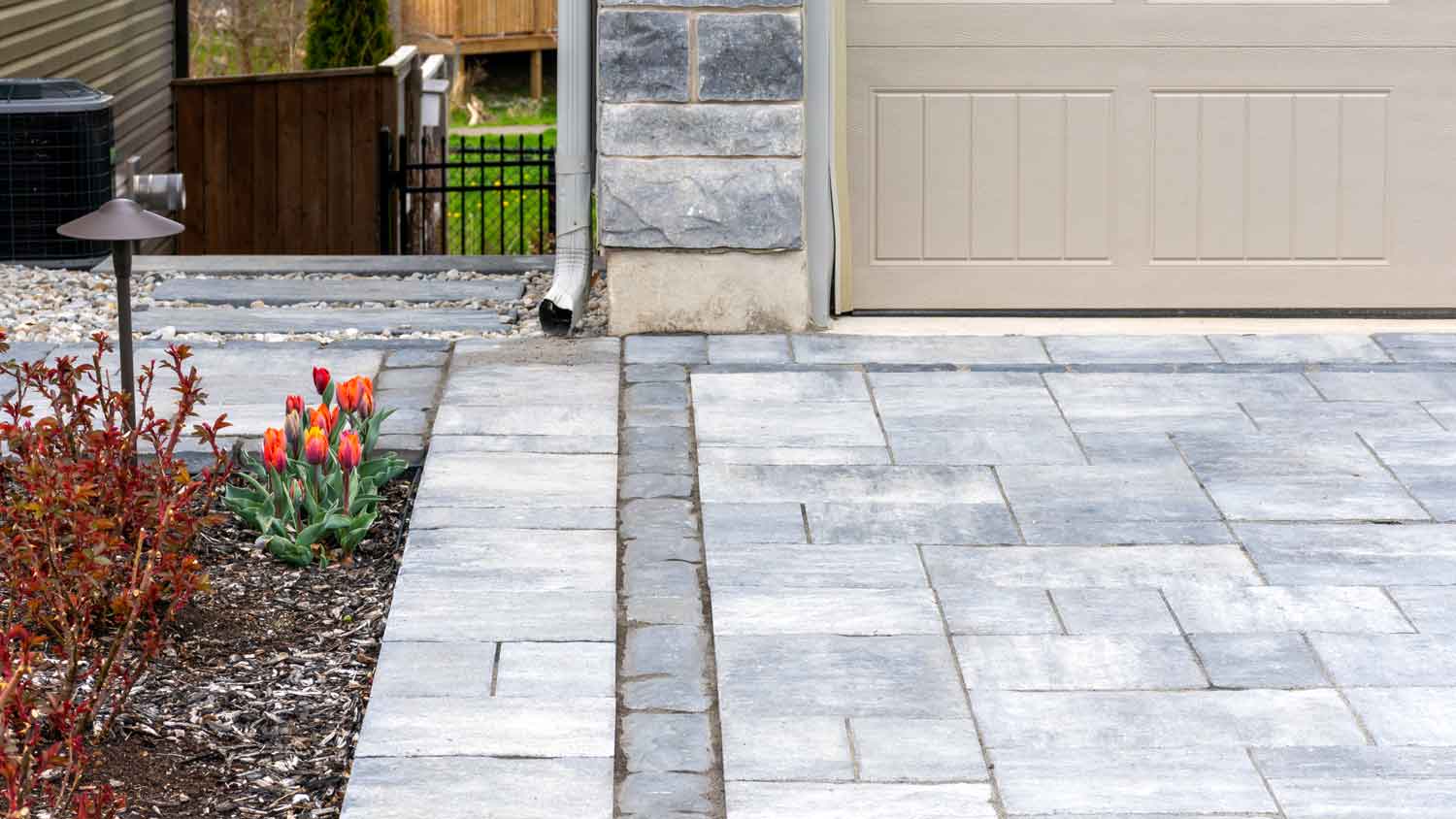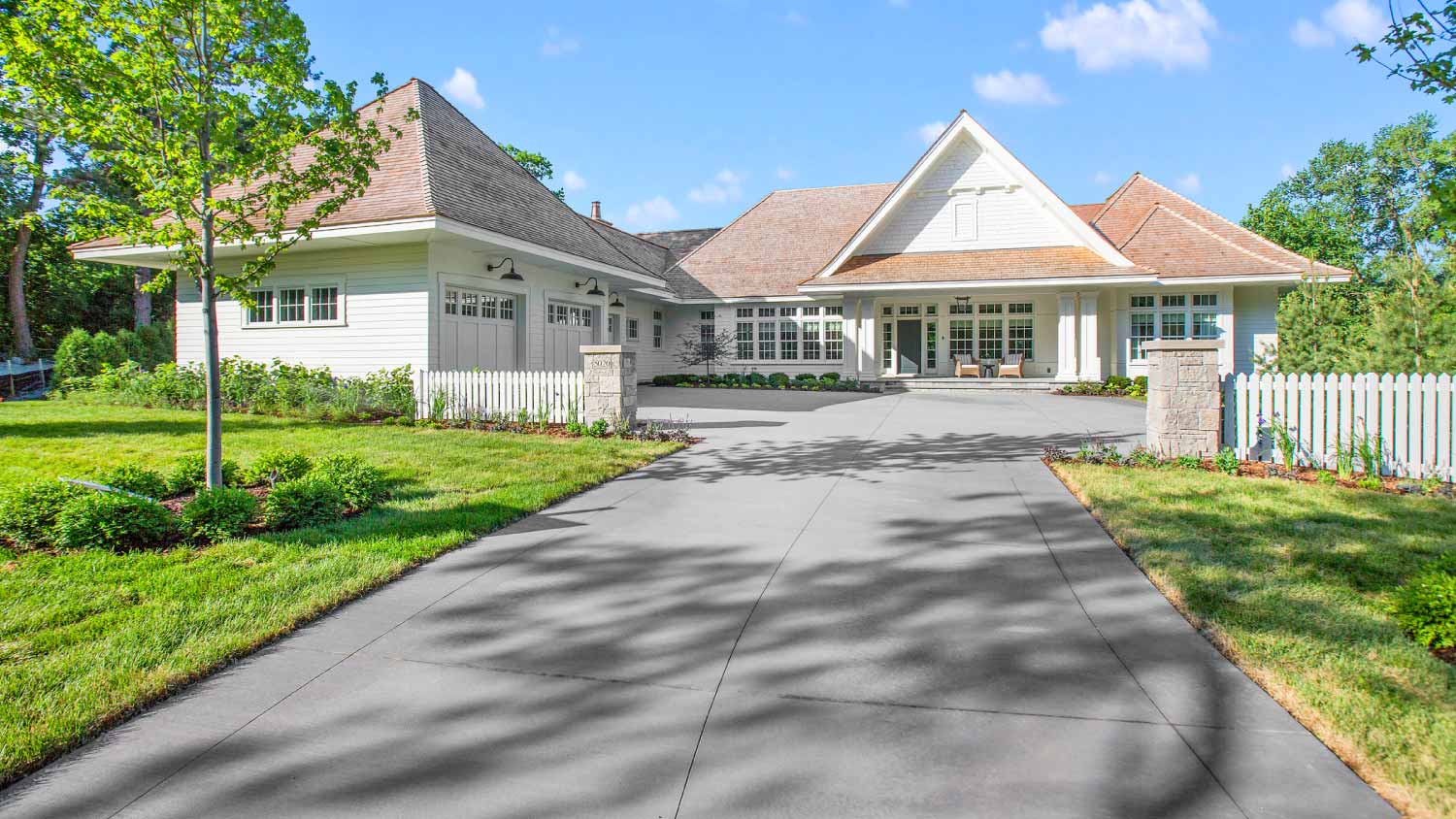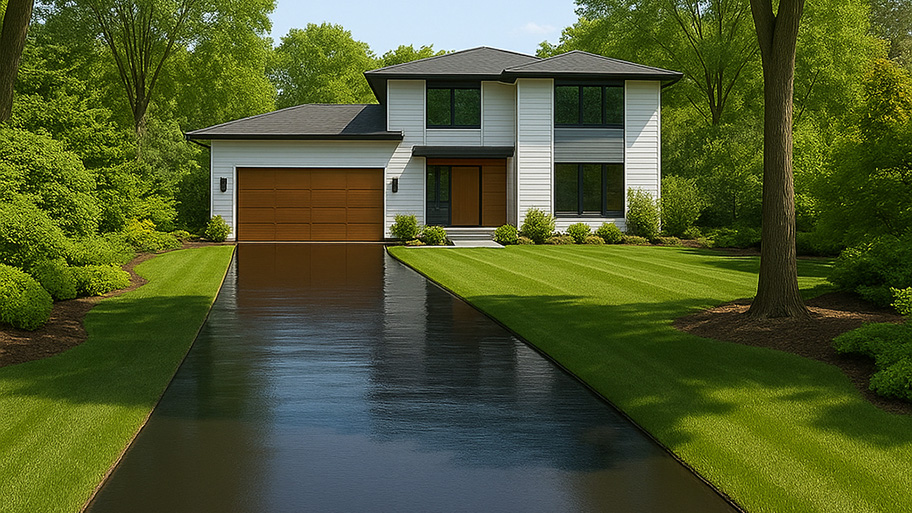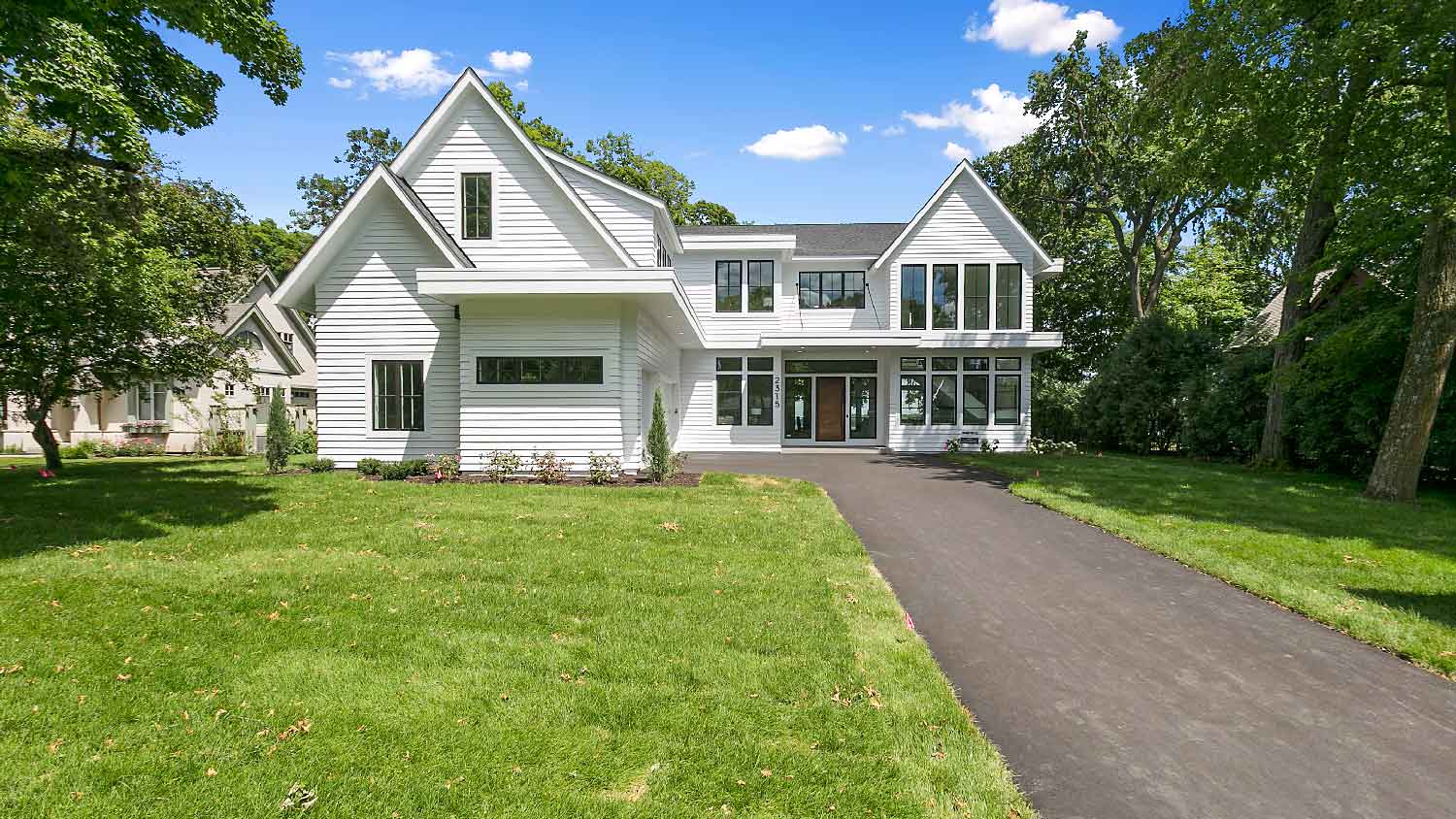
Asphalt driveway repair costs account for everything from hairline cracks to complete overhauls. Learn what to expect from your asphalt repair bill.
Break up with concrete with these eco friendly driveway alternatives.


While durable and affordable, asphalt and concrete are hardly the most eco-friendly driveway materials.
Pavers, crushed stone, and grass are three common eco-friendly driveway alternatives.
Although eco friendly materials are more expensive, they may offer other benefits like improved ROI.
No matter where you go in the United States, you’ll likely find driveways made up of asphalt or concrete. These two types of driveways are known for their durability, ease of maintenance, and affordability, but one thing is missing from the list of benefits: sustainability.
We’ve compiled a list of eco-friendly driveway alternatives that are becoming more widely available across the nation and listed out just a few of the reasons why you should use them (besides the environmental impact.) Keep reading to learn more.
While often made from recycled materials, asphalt and concrete are completely non-porous and not good driveway drainage solutions. Although these materials are highly durable and can withstand many types of weather and damage, they’re not ideal for the surrounding environment. As the water runs off the concrete or asphalt, it can pick up petroleum and pesticides that will eventually end up in storm drains without proper absorption.
Not to mention, the process of making these materials releases harmful emissions into the atmosphere and takes a lot of energy to produce, install, and maintain.
While going green will likely cost you more out of pocket than asphalt or concrete, there are a host of other benefits that may financially and mentally outweigh the difference.
Better for the environment: Every decision you make as a homeowner can impact the environment. Installing an eco-friendly driveway is just one way you can reduce your carbon footprint.
Better curb appeal: Face it, asphalt can be boring. Many popular alternatives, like pavers or brick, will immediately enhance your home’s curb appeal. So explore some driveway design inspiration and make your home stand out on the block.
Increased ROI: Enhancing your exterior can provide up to a 50% return on investment. So while it may cost more upfront, consider the financial benefits you may receive down the road.
Lower maintenance requirements: Asphalt and concrete require semi-frequent repaving and maintenance that can be cumbersome and expensive. Some of these alternatives, like gravel, can last over 100 years with minimal effort.

Going green won’t be the cheapest decision you ever made, but it may be the most fun. Here are some of the most common materials a local driveway company will use when aiming for a more sustainable solution.
If you’re worried about the upfront cost of some of these materials, consider utilizing them for just a driveway apron instead. The apron is the part between a sidewalk and the curb and is a perfect place to experiment with more unique (and more expensive) materials and designs.
Paver driveways are an attractive alternative to traditional concrete or asphalt that offer similar levels of durability. But, a paver driveway costs a lot more than a poured one due to the extensive labor and material requirements.
That being said, you may see increased ROI in the long run because of their longer life spans. They’re less prone to cracks due to better drainage and won’t require frequent resurfacing.
Pavers can also increase the value of your home because of their aesthetic appeal. But don’t be surprised if you see a big cost discrepancy between types. For example, a cobblestone driveway costs more than a concrete one.
| Pros | Cons |
|---|---|
| Attractive design option | Expensive upfront cost |
| Doesn’t require resurfacing | Requires more labor and materials |
| More affordable to repair | Hard to DIY |
A popular eco-friendly type of paver is a permeable paver that utilizes a plastic grid-locking system with real stone materials on top. Their interlocking design allows for easy water flow and faster installation, although they may not look as good as true stone pavers.
And in some cases, they’re made from up to 95% recycled materials. Talk about sustainability.
Grave is an easy, inexpensive driveway solution that can last over 100 years if maintained properly. It offers similar durability to asphalt and concrete but without the same hard structure and solidity that makes it less sustainable and eco friendly.
If you want the lowest possible cost for an eco-friendly driveway, gravel is the right choice.
| Pros | Cons |
|---|---|
| Most cost-effective | Loud to drive on |
| Easy maintenance | Hard on vehicles |
| Weekend DIY task | Less attractive |
Porous or crushed concrete is a highly eco friendly driveway material made up of recycled broken pieces of old concrete. You can either have it remixed to make new concrete or pour it like gravel.
Porous concrete allows water to drain into the ground while acting as a strong barrier to protect the earth from damage. And in some HOAs, it still fulfills the concrete requirements while offering a more eco friendly solution.
| Pros | Cons |
|---|---|
| Made from recycled materials | May not look as seamless |
| More likely to get HOA approval | Potential for clogging |
While this may sound a bit too beachy for every home, crushed seashells actually offer a unique eco-friendly solution. To make this type of driveway, professionals sustainably harvest seashells from coastlines and crush them into a porous material that can be poured for a driveway.
Overtime, the shells break down and provide nutrients to the soil as well for an added sustainable impact.
| Pros | Cons |
|---|---|
| Unique final product | Not as long-lasting |
| Highly sustainable | Uncomfortable for bare feet |
| Not available everywhere |
Who says you have to have a real driveway at all? The most eco friendly driveway option is, potentially, no driveway at all. Depending on where you live, turf may be a better option to avoid the potential muddy mess of the rainy season.
Grass or turf driveways are absorbent, porous, and highly sustainable. But the look certainly won’t be right for every home and homeowner, which is why it’s last on our list.
| Pros | Cons |
|---|---|
| Low-cost option | Not very attractive |
| Very easy to maintain | Likely won’t be approved by HOA |
From average costs to expert advice, get all the answers you need to get your job done.

Asphalt driveway repair costs account for everything from hairline cracks to complete overhauls. Learn what to expect from your asphalt repair bill.

The cost to build a road on your property can be high, but the utility is often worth it. Use this cost guide to see how much this project will cost.

Calculate the cost of installing a new asphalt driveway based on dimensions, depth, finishes, and other custom driveway details.

Give your poor mom’s back a break and fix driveway cracks as they appear. The process may be easier and more affordable than you think. Learn more.

Choosing the right asphalt is key to a long-lasting surface. Find out which mix works best for roads, driveways, and heavy-traffic areas.

Learn to remove stubborn oil stains from asphalt driveway using simple household items like baking soda, powdered detergent, or floor degreaser.